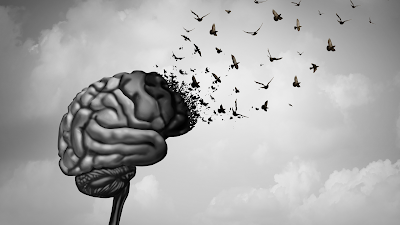Featured
- Get link
- X
- Other Apps
How long does it take your brain to heal from narcissistic abuse?
 |
| How long does it take your brain to heal from narcissistic abuse? |
When someone is narcissistic, they have a very high opinion of themselves and often put others down to make themselves look better.
This type of behavior can cause damage to the psyche, body, and relationships.
It can take a long time for a person's brain to heal from narcissistic abuse, but a few things can help speed up the process.
One thing that can help is talking about what happened and reaching out to another person affected by narcissistic abuse.
How long does it take your brain to heal from narcissistic abuse?
What is narcissistic abuse?
Narcissistic abuse is a form of emotional and psychological abuse in which one person excessively takes advantage of or abuses another for their gratification.
The abuser usually has a grandiose sense of self-importance and believes they are superior to the victim. They use charm and manipulation to control their victim.
This can result in the victim feeling worthless, insecure, and scared. It can also lead to them developing physical symptoms like headaches, stomachaches, and insomnia.
The impact of narcissistic abuse: Victims feel isolated, ashamed, and powerless
Narcissistic abuse is a pattern of abusive behaviors that one person typically carries against another.
The abuser tends to have an inflated sense of their importance and a need for excessive admiration and love. This behavior creates an environment where the victim feels isolated, ashamed, and powerless.
Victims often experience feelings of dread, helplessness, and hopelessness. They may feel they can't escape the abuse or that nobody will help them.
This type of abuse can have a devastating impact on both the victim's mental and physical health. It can lead to depression, anxiety, PTSD, substance abuse, self-hatred, and even suicide.
Given its severity and impact, it is essential to recognize narcissistic abuse when it occurs. Victims deserve to be heard and supported to recover from this traumatic experience.
How long does it take your brain to heal from narcissistic abuse?
When you are the victim of narcissistic abuse, it can feel like your brain is frozen. You may feel like you are in a fog and that everything is happening in slow motion.
It can take your brain a long time to heal from narcissistic abuse, and there is no one definitive answer as to how long it will take.
However, there are some things you can do to help speed up the process:
- Get support. Talking about what happened will be very helpful in healing, and talking to someone who understands what you are going through can be incredibly supportive. There are many resources available, such as hotlines or online groups.
- Take care of yourself physically and emotionally. When your body and mind are healthy, they can better cope with the trauma of narcissistic abuse.
The importance of seeking help: Victims need support to recover
Victims of crime need support to recover. Seeking help is critical in helping victims cope with their experiences and move on. Support can come in the form of friends, family, or professionals.
Victims who receive proper support are more likely to have a positive outcome after a crime. Victims who don't seek help may feel as if they are alone and suffer from depression and anxiety.
They may also be less likely to report the crime to authorities or to participate in court proceedings. Proper support can make a significant difference in the victim's life.
Conclusion
In conclusion, it can take a long time for the brain to heal from narcissistic abuse.
It may take months, years, or even a lifetime for the brain to recover from the trauma. If you are experiencing narcissistic abuse, it is essential to seek help.
Resources are available to you, and you deserve to take care of your mental and emotional health.
Talk to someone about what you're going through. Make sure you get the support that you need so that you can heal and move on.
- Get link
- X
- Other Apps
Popular Posts
How do I stop being drained by energy vampires?
- Get link
- X
- Other Apps

.png)
Comments
Post a Comment